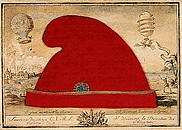Haitian History. New Perspectives Annonces
mardi 9 avril 2013
Alyssa Goldstein Sepinwall (ed.), Haitian History. New Perspectives, Routledge, collection "Rewriting Histories", 2012.
After the earthquake that ravaged Port-au-Prince in January 2010, foreign media poured into Haiti to record the devastation. Before 2010, Haiti had often been ignored by foreigners (including Americans, despite Haiti's proximity to Florida and the two countries' long and entangled history of relations). Once the earthquake struck, however, Haiti became the subject of 24-hour worlwide news coverage, including a telethon featuring Hollywood stars and pop music icons. Nevertheless, the nonstop attention to Haiti only unduscored foreigners' scant knowledge of the country's past. Those who struggled to understand Haiti's suufreing often referred to it as the poorest country in the western hemisphere, but could not explain how it came to be so.
Certainly, most commentators did not echo televangelist Pat Robertson's declaration that Haiti's plight stemmed from having made a pact with the devil in 1791 (the beginning of a slave revolt that would ultimately lead to Haitian independence). But other comments (for example, that Haiti is poor because its leaders have always been corrupt) were almost as simplistic.
Lire la suite de l'introduction sur le site des Editions Routledge

